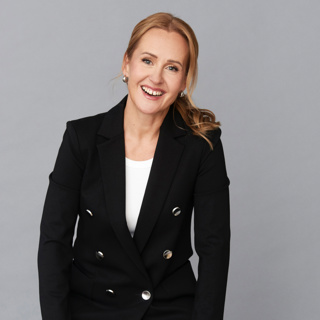
a16z Podcast: New Year, New Horizons -- Pluto!
What (on earth) does it take to get a signal to Pluto? Stanford senior scientist and astronomer Ivan Linscott, part of the team that ran the radio science experiment on the New Horizons probe, shares in conversation with a16z's Frank Chen all the nitty gritty details about their project using Ruse radio transmissions to gather info about Pluto. Listen in on exactly what it really takes to do so -- everything from commandeering old Cold War spy technology and plutonium to completing the entire mission on approximately 250 watts, and including other such highlights as a motorcycle riding, guitar playing, leather jacketed, tattooed FPGA fixer coming to fix everything when it seemed a lost cause, and the satellite going dark just moments before contact. From deep tech details to the drama of accomplishing such a difficult mission, this podcast is all about how, exactly, we sent a radio signal to Pluto. Stay Updated:Find a16z on XFind a16z on LinkedInListen to the a16z Podcast on SpotifyListen to the a16z Podcast on Apple PodcastsFollow our host: https://twitter.com/eriktorenberg Please note that the content here is for informational purposes only; should NOT be taken as legal, business, tax, or investment advice or be used to evaluate any investment or security; and is not directed at any investors or potential investors in any a16z fund. a16z and its affiliates may maintain investments in the companies discussed. For more details please see a16z.com/disclosures. Hosted by Simplecast, an AdsWizz company. See pcm.adswizz.com for information about our collection and use of personal data for advertising.
1 Tammi 201749min

a16z Podcast: The Movement of Money
As companies expand out from the internet into the rest of the economy — the proverbial bits to atoms — “the business models are becoming more complicated, more interesting, more payment based”, observes Patrick Collison, CEO and co-founder of payments platform Stripe, which enables apps/websites to programmatically move money around. But as such companies become “the operating platform for commerce”, we also have an interesting paradigm where people, not governments, are controlling the commerce supply — so “It’s not the money supply. It’s the commerce supply,” argues a16z general partner Alex Rampell. This is especially true as payments become easier, as trust and payments become interwoven, and as online, peer-to-peer marketplaces address information asymmetry. So what does this all mean for advertising as a business model, for trading goods and services directly, or for the future of stores? What does it mean for liquidity, for interest rates as a lever for the economy, and for …the end of cash? And finally, when legacy and emerging non-software businesses are increasingly networked and run on “technologically enabled rails”, what does that mean for geopolitical risk? Collison and Rampell discuss all this and more on this episode of the a16z Podcast, a hallway-style riff on all sorts of money matters. The views expressed here are those of the individual AH Capital Management, L.L.C. (“a16z”) personnel quoted and are not the views of a16z or its affiliates. Certain information contained in here has been obtained from third-party sources, including from portfolio companies of funds managed by a16z. While taken from sources believed to be reliable, a16z has not independently verified such information and makes no representations about the enduring accuracy of the information or its appropriateness for a given situation. This content is provided for informational purposes only, and should not be relied upon as legal, business, investment, or tax advice. You should consult your own advisers as to those matters. References to any securities or digital assets are for illustrative purposes only, and do not constitute an investment recommendation or offer to provide investment advisory services. Furthermore, this content is not directed at nor intended for use by any investors or prospective investors, and may not under any circumstances be relied upon when making a decision to invest in any fund managed by a16z. (An offering to invest in an a16z fund will be made only by the private placement memorandum, subscription agreement, and other relevant documentation of any such fund and should be read in their entirety.) Any investments or portfolio companies mentioned, referred to, or described are not representative of all investments in vehicles managed by a16z, and there can be no assurance that the investments will be profitable or that other investments made in the future will have similar characteristics or results. A list of investments made by funds managed by Andreessen Horowitz (excluding investments and certain publicly traded cryptocurrencies/ digital assets for which the issuer has not provided permission for a16z to disclose publicly) is available at https://a16z.com/investments/. Charts and graphs provided within are for informational purposes solely and should not be relied upon when making any investment decision. Past performance is not indicative of future results. The content speaks only as of the date indicated. Any projections, estimates, forecasts, targets, prospects, and/or opinions expressed in these materials are subject to change without notice and may differ or be contrary to opinions expressed by others. Please see https://a16z.com/disclosures for additional important information. Stay Updated:Find a16z on XFind a16z on LinkedInListen to the a16z Podcast on SpotifyListen to the a16z Podcast on Apple PodcastsFollow our host: https://twitter.com/eriktorenberg Please note that the content here is for informational purposes only; should NOT be taken as legal, business, tax, or investment advice or be used to evaluate any investment or security; and is not directed at any investors or potential investors in any a16z fund. a16z and its affiliates may maintain investments in the companies discussed. For more details please see a16z.com/disclosures. Hosted by Simplecast, an AdsWizz company. See pcm.adswizz.com for information about our collection and use of personal data for advertising.
31 Joulu 201627min

a16z Podcast: The Realities of Aging / When Healthcare Is Local
As people live longer, aging is more top of mind than ever. This is especially true for the "sandwich generation" wedged between caring for aging parents as well as young children at the same time. The fact is, the 65+ year old population (but don't you dare homogenize a multi-decade age group!) will double over just the next 15-20 years. So how does this fit into our current healthcare system? How does it fit current retail experiences, like for buying adult diapers? What are the design challenges when you're optimizing for screen-less interaction and data collection in a home environment? And finally, where do providers and payers come in? Honor's head of design Renato Valdés Olmos and head of health system integration Kelsey Mallard join this episode of the a16z Podcast to talk about all this and more. This all goes beyond discussions about fighting age with tech though -- it's about the realities of aging and caregiving, from the very mundane (going to the bathroom, for instance) to the very profound (staying in one's home, church, and community). That's why all "healthcare is local" ... or should be. The views expressed here are those of the individual AH Capital Management, L.L.C. (“a16z”) personnel quoted and are not the views of a16z or its affiliates. Certain information contained in here has been obtained from third-party sources, including from portfolio companies of funds managed by a16z. While taken from sources believed to be reliable, a16z has not independently verified such information and makes no representations about the enduring accuracy of the information or its appropriateness for a given situation. This content is provided for informational purposes only, and should not be relied upon as legal, business, investment, or tax advice. You should consult your own advisers as to those matters. References to any securities or digital assets are for illustrative purposes only, and do not constitute an investment recommendation or offer to provide investment advisory services. Furthermore, this content is not directed at nor intended for use by any investors or prospective investors, and may not under any circumstances be relied upon when making a decision to invest in any fund managed by a16z. (An offering to invest in an a16z fund will be made only by the private placement memorandum, subscription agreement, and other relevant documentation of any such fund and should be read in their entirety.) Any investments or portfolio companies mentioned, referred to, or described are not representative of all investments in vehicles managed by a16z, and there can be no assurance that the investments will be profitable or that other investments made in the future will have similar characteristics or results. A list of investments made by funds managed by Andreessen Horowitz (excluding investments and certain publicly traded cryptocurrencies/ digital assets for which the issuer has not provided permission for a16z to disclose publicly) is available at https://a16z.com/investments/. Charts and graphs provided within are for informational purposes solely and should not be relied upon when making any investment decision. Past performance is not indicative of future results. The content speaks only as of the date indicated. Any projections, estimates, forecasts, targets, prospects, and/or opinions expressed in these materials are subject to change without notice and may differ or be contrary to opinions expressed by others. Please see https://a16z.com/disclosures for additional important information. Stay Updated:Find a16z on XFind a16z on LinkedInListen to the a16z Podcast on SpotifyListen to the a16z Podcast on Apple PodcastsFollow our host: https://twitter.com/eriktorenberg Please note that the content here is for informational purposes only; should NOT be taken as legal, business, tax, or investment advice or be used to evaluate any investment or security; and is not directed at any investors or potential investors in any a16z fund. a16z and its affiliates may maintain investments in the companies discussed. For more details please see a16z.com/disclosures. Hosted by Simplecast, an AdsWizz company. See pcm.adswizz.com for information about our collection and use of personal data for advertising.
27 Joulu 201631min

a16z Podcast: Mobility and the Global Refugee Crisis
"We throw around words like 'crisis' very easily, but this is a global crisis, and it is of historic proportions," says current U.S. Deputy Secretary of State Tony Blinken about the refugee crisis (for which he and his department mobilized a response that significantly accelerated government efforts to assist refugees, as well as engage the tech sector). "People don't realize that before 2011, the number of Syrian refugees was zero," shares Lina Sergie Attar of the non-profit Karam Foundation, which aims to build a better future for Syria through education, smart aid, and sustainable development programs for internally displaced communities inside Syria as well as refugee populations in neighboring countries. Yet in this episode of the a16z Podcast (with Sonal Chokshi and a16z's Matt Spence, who was Deputy Assistant Secretary of Defense at the Middle East) both agree that it's a crisis that requires a global response, including from the tech industry. Especially when technologies like the smartphone, which "is the most important object" that refugees have -- for migration, communication, documentation, connection, commerce, more -- can and do play a role. But we need to go beyond the "mobile migration" narrative here: Maybe we shouldn't focus on promoting superhero 'migration' success stories or citing statistics, and instead find out more about the broader context and details of refugees' day to day lives. Maybe it's not about being 'solutionistic' ... but is about finding solutions. Maybe it's about the intersection of foreign policy and technology; it most certainly is about our collective humanity. image: Mustafa Bader / Wikimedia Stay Updated:Find a16z on XFind a16z on LinkedInListen to the a16z Podcast on SpotifyListen to the a16z Podcast on Apple PodcastsFollow our host: https://twitter.com/eriktorenberg Please note that the content here is for informational purposes only; should NOT be taken as legal, business, tax, or investment advice or be used to evaluate any investment or security; and is not directed at any investors or potential investors in any a16z fund. a16z and its affiliates may maintain investments in the companies discussed. For more details please see a16z.com/disclosures. Hosted by Simplecast, an AdsWizz company. See pcm.adswizz.com for information about our collection and use of personal data for advertising.
16 Joulu 201634min

a16z Podcast: Produce or Perish! (What We Eat)
Nature is the ultimate complex system, of course — but with today’s technology, it’s now provided us with an “incredible toolkit” of different molecules that material scientists can treat like Legos to make some really interesting products. One of those is a protective layer for fruits and vegetables that extends shelf life and freshness. Because all produce is seasonal, it’s perishable — so there’s a limited geographical radius around which it can travel… whether by land, sea, or air. How does this change what food we sell, buy, eat… taste? How does it affect smallholder farmers both in the United States and in the developing world — where there’s no real infrastructure, yet alone for a cold-storage supply chain? And finally, what are some of the most interesting advances in the interdisciplinary field of materials science right now and up next: Is it finally time for these “hard”ware companies to be more software-like? All this and more (and unfortunately, some puns too!) on this episode of the a16z Podcast with Apeel founder and CEO James Rogers and a16z partners Malinka Walaliyadde and Sonal Chokshi. Will tech reshape the food-map of the world? The views expressed here are those of the individual AH Capital Management, L.L.C. (“a16z”) personnel quoted and are not the views of a16z or its affiliates. Certain information contained in here has been obtained from third-party sources, including from portfolio companies of funds managed by a16z. While taken from sources believed to be reliable, a16z has not independently verified such information and makes no representations about the enduring accuracy of the information or its appropriateness for a given situation. This content is provided for informational purposes only, and should not be relied upon as legal, business, investment, or tax advice. You should consult your own advisers as to those matters. References to any securities or digital assets are for illustrative purposes only, and do not constitute an investment recommendation or offer to provide investment advisory services. Furthermore, this content is not directed at nor intended for use by any investors or prospective investors, and may not under any circumstances be relied upon when making a decision to invest in any fund managed by a16z. (An offering to invest in an a16z fund will be made only by the private placement memorandum, subscription agreement, and other relevant documentation of any such fund and should be read in their entirety.) Any investments or portfolio companies mentioned, referred to, or described are not representative of all investments in vehicles managed by a16z, and there can be no assurance that the investments will be profitable or that other investments made in the future will have similar characteristics or results. A list of investments made by funds managed by Andreessen Horowitz (excluding investments and certain publicly traded cryptocurrencies/ digital assets for which the issuer has not provided permission for a16z to disclose publicly) is available at https://a16z.com/investments/. Charts and graphs provided within are for informational purposes solely and should not be relied upon when making any investment decision. Past performance is not indicative of future results. The content speaks only as of the date indicated. Any projections, estimates, forecasts, targets, prospects, and/or opinions expressed in these materials are subject to change without notice and may differ or be contrary to opinions expressed by others. Please see https://a16z.com/disclosures for additional important information. Stay Updated:Find a16z on XFind a16z on LinkedInListen to the a16z Podcast on SpotifyListen to the a16z Podcast on Apple PodcastsFollow our host: https://twitter.com/eriktorenberg Please note that the content here is for informational purposes only; should NOT be taken as legal, business, tax, or investment advice or be used to evaluate any investment or security; and is not directed at any investors or potential investors in any a16z fund. a16z and its affiliates may maintain investments in the companies discussed. For more details please see a16z.com/disclosures. Hosted by Simplecast, an AdsWizz company. See pcm.adswizz.com for information about our collection and use of personal data for advertising.
14 Joulu 201635min

a16z Podcast: The Internet Is Your Movement
Clearly disruption plays out not just in business but also in politics. Whether it was the Scottish national party, recent election campaigns, or local school boards, people grew and organized communities online all last year through NationBuilder -- which provided a software platform for those otherwise underserved from an established technology perspective (hence the disruption theory reference). Harnessing the energy of communities goes beyond politics though, to all kinds of movements. But what happens when people remain in filter bubbles on the internet -- the very internet that NationBuilder CEO Jim Gilliam famously called his "religion"? What happens when that religious fervor or energy can be... "rabid"-like? Especially in a context where money, media, and other traditional institutions might not have the same impact or control they once did? "The internet can reflect back whatever it is that we want it to -- and we need more leaders to step up and say, 'Look, this is the way that I want it to be'," argues Gilliam in this episode of the a16z Podcast in conversation with Ben Horowitz (based on a session recorded at our recent a16z Summit event). Movements, it seems, are really about leadership, and the future is not written yet as people create new models of voice and choice. The views expressed here are those of the individual AH Capital Management, L.L.C. (“a16z”) personnel quoted and are not the views of a16z or its affiliates. Certain information contained in here has been obtained from third-party sources, including from portfolio companies of funds managed by a16z. While taken from sources believed to be reliable, a16z has not independently verified such information and makes no representations about the enduring accuracy of the information or its appropriateness for a given situation. This content is provided for informational purposes only, and should not be relied upon as legal, business, investment, or tax advice. You should consult your own advisers as to those matters. References to any securities or digital assets are for illustrative purposes only, and do not constitute an investment recommendation or offer to provide investment advisory services. Furthermore, this content is not directed at nor intended for use by any investors or prospective investors, and may not under any circumstances be relied upon when making a decision to invest in any fund managed by a16z. (An offering to invest in an a16z fund will be made only by the private placement memorandum, subscription agreement, and other relevant documentation of any such fund and should be read in their entirety.) Any investments or portfolio companies mentioned, referred to, or described are not representative of all investments in vehicles managed by a16z, and there can be no assurance that the investments will be profitable or that other investments made in the future will have similar characteristics or results. A list of investments made by funds managed by Andreessen Horowitz (excluding investments and certain publicly traded cryptocurrencies/ digital assets for which the issuer has not provided permission for a16z to disclose publicly) is available at https://a16z.com/investments/. Charts and graphs provided within are for informational purposes solely and should not be relied upon when making any investment decision. Past performance is not indicative of future results. The content speaks only as of the date indicated. Any projections, estimates, forecasts, targets, prospects, and/or opinions expressed in these materials are subject to change without notice and may differ or be contrary to opinions expressed by others. Please see https://a16z.com/disclosures for additional important information. Stay Updated:Find a16z on XFind a16z on LinkedInListen to the a16z Podcast on SpotifyListen to the a16z Podcast on Apple PodcastsFollow our host: https://twitter.com/eriktorenberg Please note that the content here is for informational purposes only; should NOT be taken as legal, business, tax, or investment advice or be used to evaluate any investment or security; and is not directed at any investors or potential investors in any a16z fund. a16z and its affiliates may maintain investments in the companies discussed. For more details please see a16z.com/disclosures. Hosted by Simplecast, an AdsWizz company. See pcm.adswizz.com for information about our collection and use of personal data for advertising.
9 Joulu 201622min

a16z Podcast: Health Data -- A Feedback Loop for Humanity
"We live in a world where we use millions of variables to predict which ad you're going to click on. Whether or not you deserve to get a loan. What movie you might watch next. But when it comes to our bodies and even serious diseases, we want to reduce things down to just one or two variables." It's insane that we actually collect so little data about our bodies. The modern day physical is downright spartan in what it captures, not to mention that we're using 200-year old tools to capture that very limited data. Which is why we need to borrow from other domains of science and data and apply that to our bodies, in more ways than one, argues Q founder and CEO Jeffrey Kaditz with a16z bio fund general partner Vijay Pande (in conversation with Sonal Chokshi) on this episode of the a16z Podcast. But how do we get there? What would data "rights" look like -- and could we possibly donate data much like we currently donate organs? And for catching diseases like prostate or breast cancer early, how can we use data captured over multiple points in time -- something not really done right now in medicine -- to be more predictive, sensitive, and specific beyond so-called "representative" population samples? What IS a 'diagnostic', really, anyway? The views expressed here are those of the individual AH Capital Management, L.L.C. (“a16z”) personnel quoted and are not the views of a16z or its affiliates. Certain information contained in here has been obtained from third-party sources, including from portfolio companies of funds managed by a16z. While taken from sources believed to be reliable, a16z has not independently verified such information and makes no representations about the enduring accuracy of the information or its appropriateness for a given situation. This content is provided for informational purposes only, and should not be relied upon as legal, business, investment, or tax advice. You should consult your own advisers as to those matters. References to any securities or digital assets are for illustrative purposes only, and do not constitute an investment recommendation or offer to provide investment advisory services. Furthermore, this content is not directed at nor intended for use by any investors or prospective investors, and may not under any circumstances be relied upon when making a decision to invest in any fund managed by a16z. (An offering to invest in an a16z fund will be made only by the private placement memorandum, subscription agreement, and other relevant documentation of any such fund and should be read in their entirety.) Any investments or portfolio companies mentioned, referred to, or described are not representative of all investments in vehicles managed by a16z, and there can be no assurance that the investments will be profitable or that other investments made in the future will have similar characteristics or results. A list of investments made by funds managed by Andreessen Horowitz (excluding investments and certain publicly traded cryptocurrencies/ digital assets for which the issuer has not provided permission for a16z to disclose publicly) is available at https://a16z.com/investments/. Charts and graphs provided within are for informational purposes solely and should not be relied upon when making any investment decision. Past performance is not indicative of future results. The content speaks only as of the date indicated. Any projections, estimates, forecasts, targets, prospects, and/or opinions expressed in these materials are subject to change without notice and may differ or be contrary to opinions expressed by others. Please see https://a16z.com/disclosures for additional important information. Stay Updated:Find a16z on XFind a16z on LinkedInListen to the a16z Podcast on SpotifyListen to the a16z Podcast on Apple PodcastsFollow our host: https://twitter.com/eriktorenberg Please note that the content here is for informational purposes only; should NOT be taken as legal, business, tax, or investment advice or be used to evaluate any investment or security; and is not directed at any investors or potential investors in any a16z fund. a16z and its affiliates may maintain investments in the companies discussed. For more details please see a16z.com/disclosures. Hosted by Simplecast, an AdsWizz company. See pcm.adswizz.com for information about our collection and use of personal data for advertising.
5 Joulu 201630min

a16z Podcast: Knowledge Builds Technology and Technology Builds Knowledge -- with Joel Mokyr
The Industrial Revolution (and period between 1500-1700) was an unprecedented age of technology and economic progress — not unlike today’s, in fact — where we took “quantum leaps” forward in tech by taming electricity, making cheaper steel and refining iron cheaply, automating fiber looms, pumping water out of coal mines, figuring out how to measure longitude at sea, improving the quality of food, preventing smallpox, … even bleaching underwear. But what really triggered the Industrial Revolution? Why did it take place in Europe and spread beyond? It has to do with a competitive, open market of ideas — a transnational “Republic of Letters”, not unlike the early days of the blogosphere. And the conditions that created it (virtual networks, open access science, weak ties, and so on) are the very conditions we may need to sustain growth and prosperity even today, argues Joel Mokyr, professor of economics and history at Northwestern and author of the new book A Culture of Growth: The Origins of the Modern Economy. Despite fears of what new tech may bring, the alternative to not innovating is stagnation — “not doing it is worse”, argues Mokyr in this episode of the a16z Podcast. So how do we then measure that growth? How does this all play out internationally, and institutionally? And what happens when we bring shared focus to big problems, like climate change? If there’s one pattern that continues to play out throughout history to today, it’s that “Knowledge builds technology and technology builds knowledge.” image: Library of Congress Stay Updated:Find a16z on XFind a16z on LinkedInListen to the a16z Podcast on SpotifyListen to the a16z Podcast on Apple PodcastsFollow our host: https://twitter.com/eriktorenberg Please note that the content here is for informational purposes only; should NOT be taken as legal, business, tax, or investment advice or be used to evaluate any investment or security; and is not directed at any investors or potential investors in any a16z fund. a16z and its affiliates may maintain investments in the companies discussed. For more details please see a16z.com/disclosures. Hosted by Simplecast, an AdsWizz company. See pcm.adswizz.com for information about our collection and use of personal data for advertising.
27 Marras 201636min





















